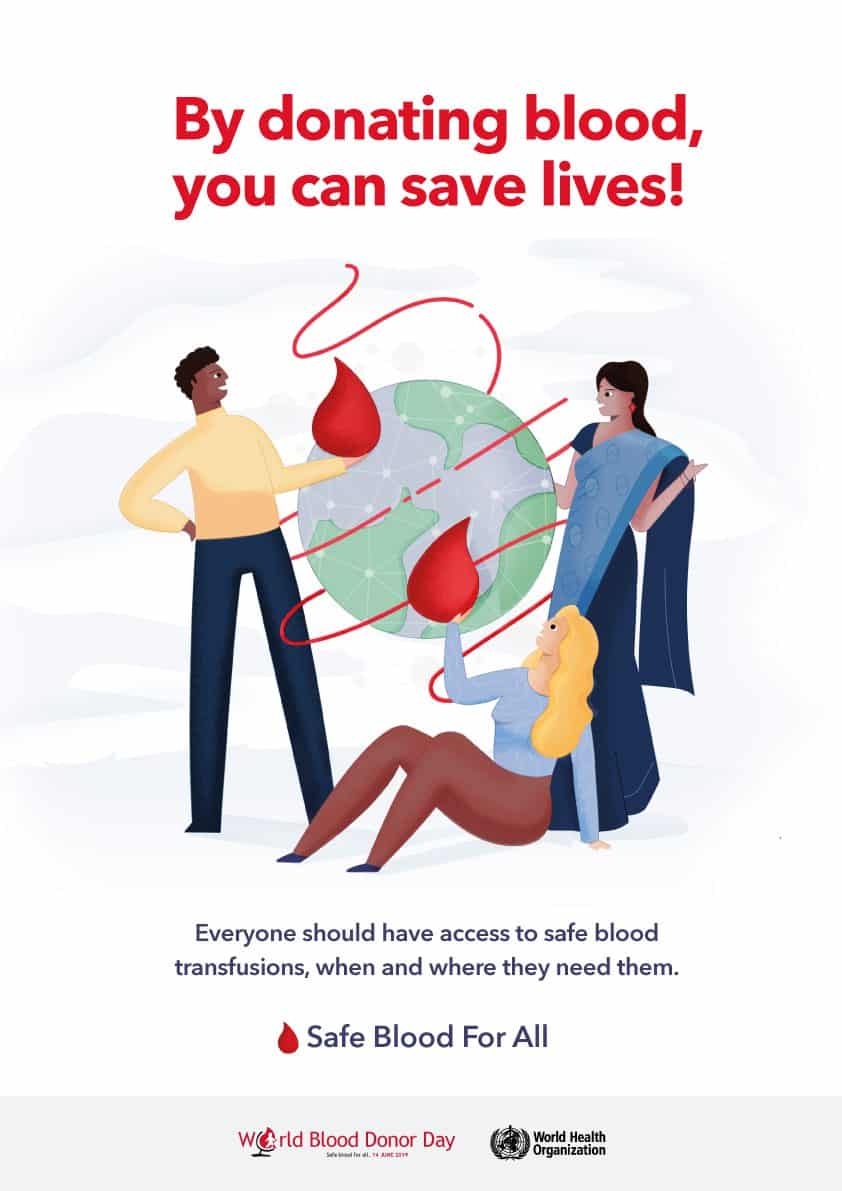Today is an important day with the potential to directly affect fifty percent of our population. It’s World Blood Donor Day and half of all Canadians will either know someone who needs blood or will need blood themselves. Countries around the world are recognizing this day in an effort to raise awareness of the need for blood and blood products. There’s also a goal to promote and inspire more blood donations by talking about how easy and how important it is to donate.
How to Donate
If you’re donating blood in Canada, Canadian Blood Services is the agency you’ll use. There are 35 permanent donor centres, plus more than 4000 mobile donor centres across the country. The Canadian Blood Services website is full of information and they use video extensively to help visitors understand the importance of donation and the process. We’ll look at several videos in this blog, starting with this general promotional video.
What Happens During a Donation?
One of the most common questions asked by prospective and new donors is what happens during this process? The process is outlined here and you can watch an overview video (see below). There’s even an interactive quiz you can take to see whether you’re eligible. Then you can make an appointment online.

Your reward for making a blood donation? A refreshing drink, a delicious snack, and the satisfaction of helping others! After your first donation, the process is even faster. Donations take ten to fifteen minutes and most people can donate once every three months.
O-Negative DONORS ARE CONSIDERED UNIVERSAL because THIS BLOOD TYPE can be given to anyone
How Will My Donation be Used?
Donations of blood are used in many ways. Most people think of accident victims and surgical patients as the destination for blood donations. Did you know that donations are also used for cancer patients receiving chemotherapy? Here’s some more info on how your blood donation can help save lives.
Global Blood Donation Numbers
The need for blood donors is global:
- 117.4 million donations are collected around the world
- High-income countries like Canada contribute 42% of blood donations
- In low-income countries, up to 52% of transfusions are given to children under 5
- In high-income countries, seniors receive the most blood transfusions
- Between 2008 and 2015, an increase of 11.6 million blood donations was reported
Blood Donation and Safety
Safety is a top priority when it comes to blood donation in Canada. Canadian Blood Services has an entire webpage with information about safety procedures and a series of videos in which the CEO of Canadian Blood Services addresses the importance of safety.
There are three main components of blood donation safety:
- donors are screened for the transmission of infectious diseases
- all donated blood undergoes extensive testing for infectious diseases, including HIV and hepatitis viruses
- donated blood is scrutinized for new, emerging pathogens that could pose a risk to the population, such as SARS or the Zika virus
Leading by Example
Across North America, 43,000 pints of blood are used daily and a single pint of blood (the average donation) can save up to three lives. We think once you’ve donated, you’ll see how easy it is to make it a habit.

We’re proud to say that one of our editors donates blood regularly. She’s showing us all how easy it is to get involved and save lives. Thank you, Polina.









